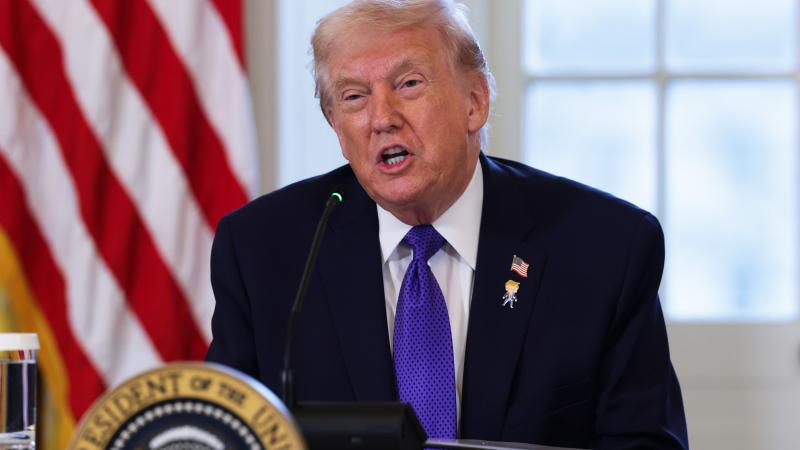Warnock wins Georgia Senate runoff, Walker concedes
Before Election Day, the state had accepted 174,099 absentee ballots and 1,715,062 individuals had voted early, for a total of nearly 1.9 million early voters, roughly 27% of the state's electorate.
Democratic Sen. Raphael Warnock claimed victory in Georgia's Tuesday night Senate runoff election.
The Associated Press called the race for Warnock on election night with an estimated 93% of precincts reporting. As of press time, Warnock led with 50.56% of the vote to Republican Herschel Walker's 49.44%. Prior to Election Day, polls had shown Warnock with a slight lead over Walker.
Walker conceded the race late Tuesday evening, after the AP projected his opponent to win. "There's no excuses in life and I am not going to make any excuses now because we put up one heck of a fight," he told supporters. He did not explicitly mention Warnock during the speech, according to the Atlanta Journal-Constitution. The Republican further urged his supporters to trust in the constitutional process and to continue voting in elections.
Warnock emerged slightly ahead of Walker on Nov. 8, but fell short of the 50% threshold needed to avoid a runoff contest.
Early voting set same-day records in the week leading up to the Dec. 6 contest, though overall early totals lagged considerably behind the January 2021 runoff in which Warnock won his seat from then-Republican Sen. Kelly Loeffler.
Before Election Day, the state had accepted 174,099 absentee ballots and 1,715,062 individuals had voted early, for a total of nearly 1.9 million early voters, roughly 27% of the state's electorate. Those figures represent a significant decline in early voting from the January 2021 runoff, in which approximately 3.1 million Georgians cast their ballots prior to the day of the actual election.
While early voting tends to skew heavily toward Democrats, some Republican leaders made a conscious effort to push the party toward embracing the process and securing the ballots of its low-propensity voters after disappointing results in the Nov. 8 midterm contests.
Former Trump campaign chairman Paul Manafort told the "Just the News, No Noise" television show in mid-November that the party suffered losses by running outdated election models that didn't incorporate early voting.
"If we want to win, we have to do what's necessary to win," Manafort said. "And we can't just say it's easy to just turn out the votes on Election Day. We still saw what happened.
"We have to organize ourselves according to what the schedule of voting is, and then we have to work backwards. If they have early voting that starts on the 15th of October, we have to be trying to get our debates before that. We have to have our own organized message."
Early voters still skewed heavily for Warnock. Walker played catchup, trailing his Democratic rival for most of the night and gradually narrowing the gap. At times, Walker even surged ahead, as the race remained extremely close well into the night.
Turnout was down from the Nov. 8 election in almost every county, according to the New York Times. Results loosely repeated those of the earlier election from a geographic standpoint, though northern Georgia counties skewed more toward Walker than before, while the state's major cities, and a significant portion of rural South Georgia moved toward Warnock.
The Democrat gradually began to pull ahead after 10:00 p.m., at which time roughly 90% of precincts had submitted their totals. Votes from the Atlanta area trickled in late in the evening and slowly pushed Warnock ahead to a more comfortable lead. The New York Times projects, as of press time, that Warnock will eventually claim a 2.8% margin of victory, which roughly aligns with pre-election polling.
The close Senate contest stands in contrast to the gubernatorial contest, which yielded a decisive victory for incumbent Republican Gov. Brian Kemp. After narrowly squeaking out a win against Democrat Stacey Abrams in 2018, Kemp significantly expanded his previous margin against Abrams, claiming a 7.5% margin of victory on Nov. 8.
Unlike Walker, whom Donald Trump endorsed and who maintains a close association with the former president, Kemp has publicly clashed with Trump over his claims that election fraud in his state affected the results of the 2020 presidential contest. The significant disparity in performance between a close ally of Donald Trump and the more mainline Kemp may fuel questions about the 45th president's continued influence in the party, as polling suggests he may face formidable opponents as he seeks the Republican nomination in 2024.
















